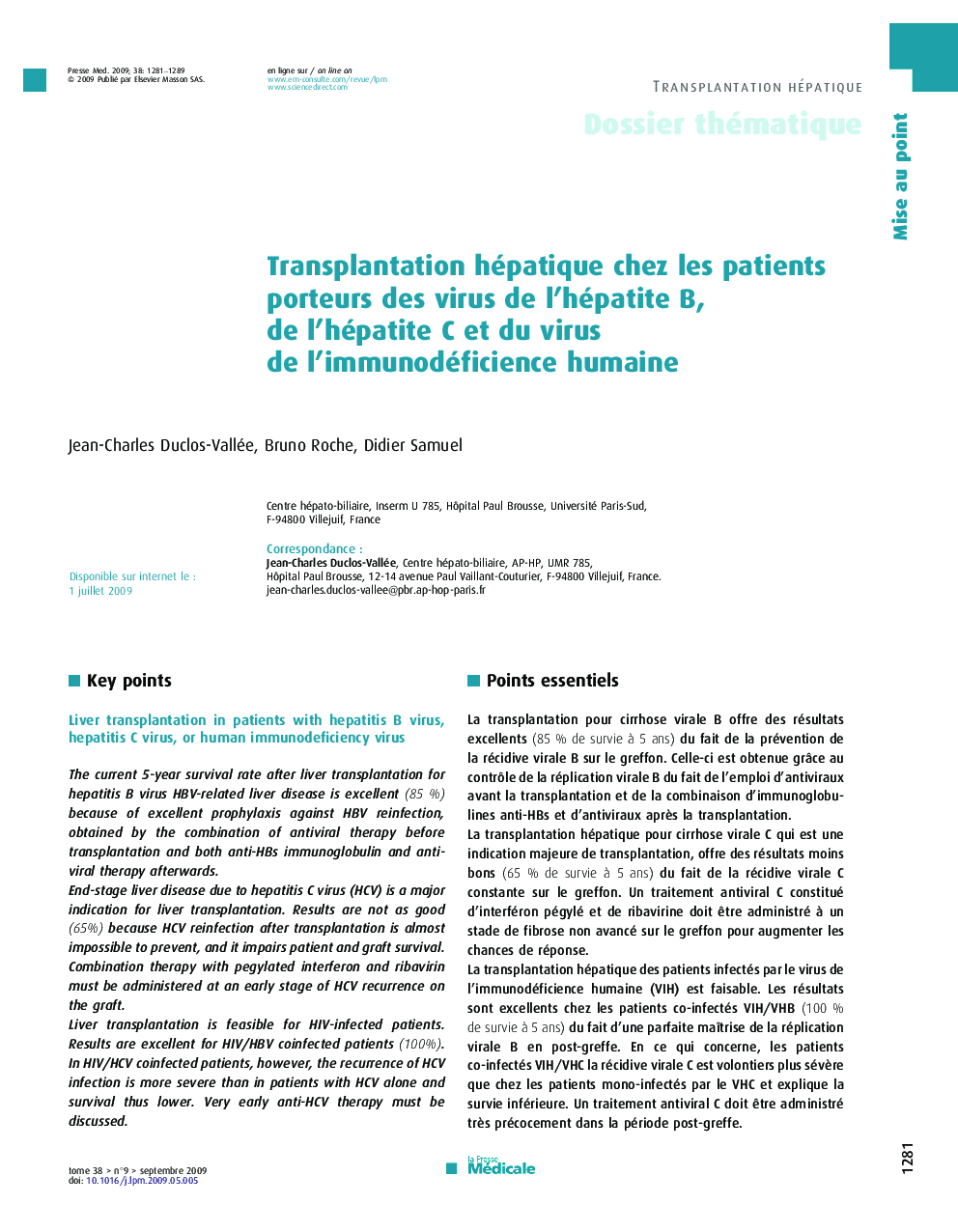| Article ID | Journal | Published Year | Pages | File Type |
|---|---|---|---|---|
| 3818480 | La Presse Médicale | 2009 | 9 Pages |
Points essentielsLa transplantation pour cirrhose virale B offre des résultats excellents (85 % de survie à 5 ans) du fait de la prévention de la récidive virale B sur le greffon. Celle-ci est obtenue grâce au contrôle de la réplication virale B du fait de l’emploi d’antiviraux avant la transplantation et de la combinaison d’immunoglobulines anti-HBs et d’antiviraux après la transplantation.La transplantation hépatique pour cirrhose virale C qui est une indication majeure de transplantation, offre des résultats moins bons (65 % de survie à 5 ans) du fait de la récidive virale C constante sur le greffon. Un traitement antiviral C constitué d’interféron pégylé et de ribavirine doit être administré à un stade de fibrose non avancé sur le greffon pour augmenter les chances de réponse.La transplantation hépatique des patients infectés par le virus de l’immunodéficience humaine (VIH) est faisable. Les résultats sont excellents chez les patients co-infectés VIH/VHB (100 % de survie à 5 ans) du fait d’une parfaite maîtrise de la réplication virale B en post-greffe. En ce qui concerne, les patients co-infectés VIH/VHC la récidive virale C est volontiers plus sévère que chez les patients mono-infectés par le VHC et explique la survie inférieure. Un traitement antiviral C doit être administré très précocement dans la période post-greffe.
Key pointsThe current 5-year survival rate after liver transplantation for hepatitis B virus HBV-related liver disease is excellent (85 %) because of excellent prophylaxis against HBV reinfection, obtained by the combination of antiviral therapy before transplantation and both anti-HBs immunoglobulin and antiviral therapy afterwards.End-stage liver disease due to hepatitis C virus (HCV) is a major indication for liver transplantation. Results are not as good (65%) because HCV reinfection after transplantation is almost impossible to prevent, and it impairs patient and graft survival. Combination therapy with pegylated interferon and ribavirin must be administered at an early stage of HCV recurrence on the graft.Liver transplantation is feasible for HIV-infected patients. Results are excellent for HIV/HBV coinfected patients (100%). In HIV/HCV coinfected patients, however, the recurrence of HCV infection is more severe than in patients with HCV alone and survival thus lower. Very early anti-HCV therapy must be discussed.
